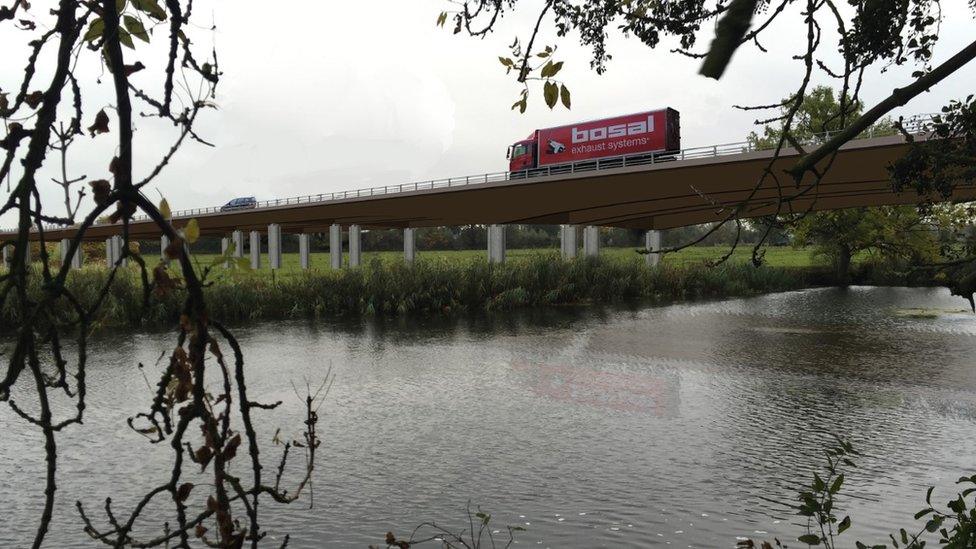'First British beer' discovered in Cambridgeshire A14 roadworks
- Published

The Iron Age people of Cambridgeshire had a taste for beer
Road workers have uncovered what is thought to be the earliest evidence of beer being brewed in Britain, dating back more than 2,000 years.
Experts found "tell-tale signs of the Iron Age brew" during work on improvements to the A14 between Cambridge and Huntingdon.
It is believed the find could date back as far as 400BC.
Archaeobotanist Lara Gonzalez said it was "incredibly exciting to identify remains of this significance".
Highways England said the find was uncovered in fragments of charred residue from the beer-making process.
Ms Gonzalez added: "I knew when I looked at these tiny fragments under the microscope that I had something special.
"The microstructure of these remains had clearly changed through the fermentation process and air bubbles typical of those formed in the boiling and mashing process of brewing."
She said the fragments were similar to bread, but showed "evidence of fermentation and contains larger pieces of cracked grains and bran, but no fine flour".
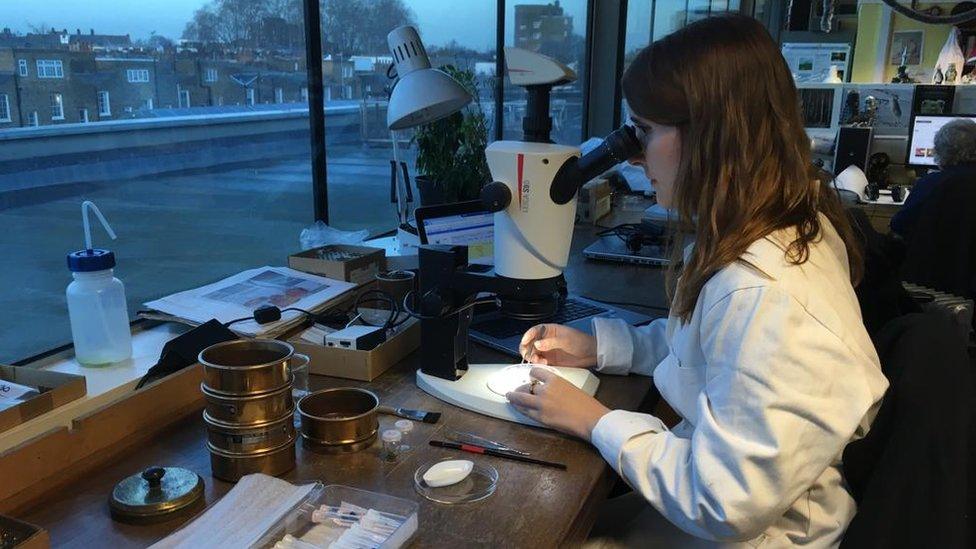
Evidence of the beer-making process was uncovered by Lara Gonzalez
Dr Steve Sherlock, archaeology lead, said: "It's a well-known fact that ancient populations used the beer-making process to purify water and create a safe source of hydration, but this is potentially the earliest physical evidence of that process taking place in the UK."
A Highways England spokesman said further finds showed "the locals also had a taste for porridge and bread".
The £1.5bn roadworks have already uncovered the Ice Age remains of a woolly mammoth which could be at least 150,000 years old.
'Incredible discoveries'
It has also unearthed prehistoric henges, Iron Age settlements, Roman kilns, three Anglo-Saxon villages and a medieval hamlet.
Dr Sherlock added: "The work we are doing on the A14 continues to unearth incredible discoveries that are helping to shape our understanding of how life in Cambridgeshire, and beyond, has developed through history."
The work includes creating a new bypass to the south of Huntingdon and upgrading 21 miles of road.
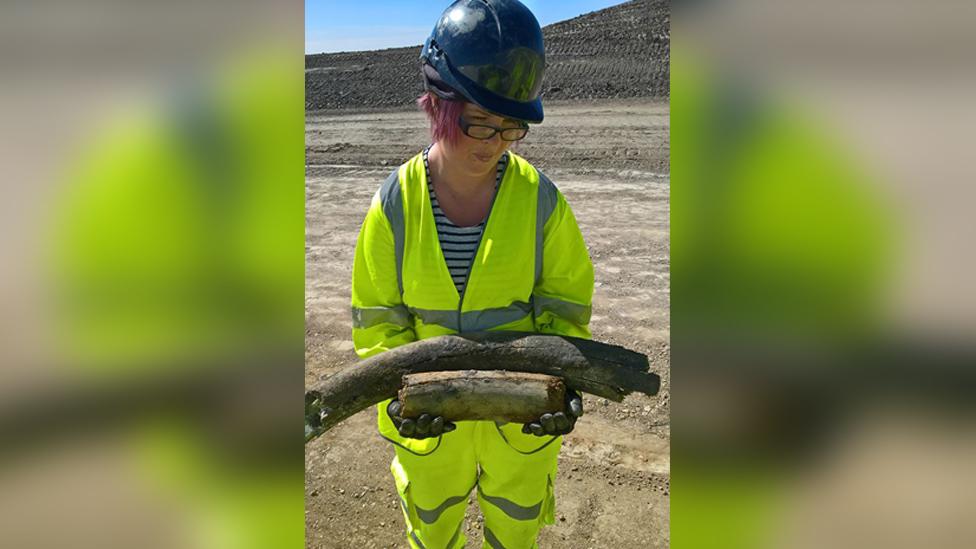
Road workers discovered the woolly mammoth bones while digging on the A14 near Fenstanton
- Published19 October 2018

- Published4 October 2018
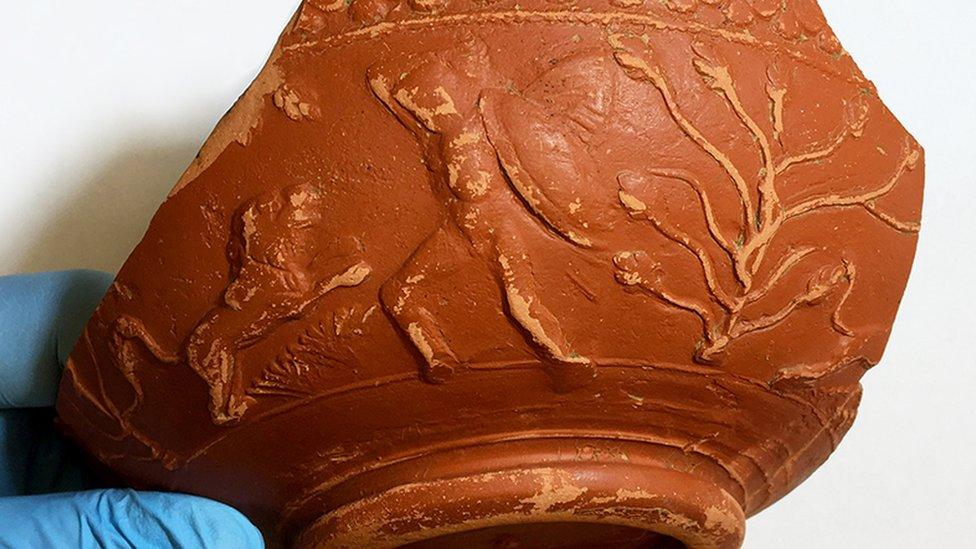
- Published7 September 2018
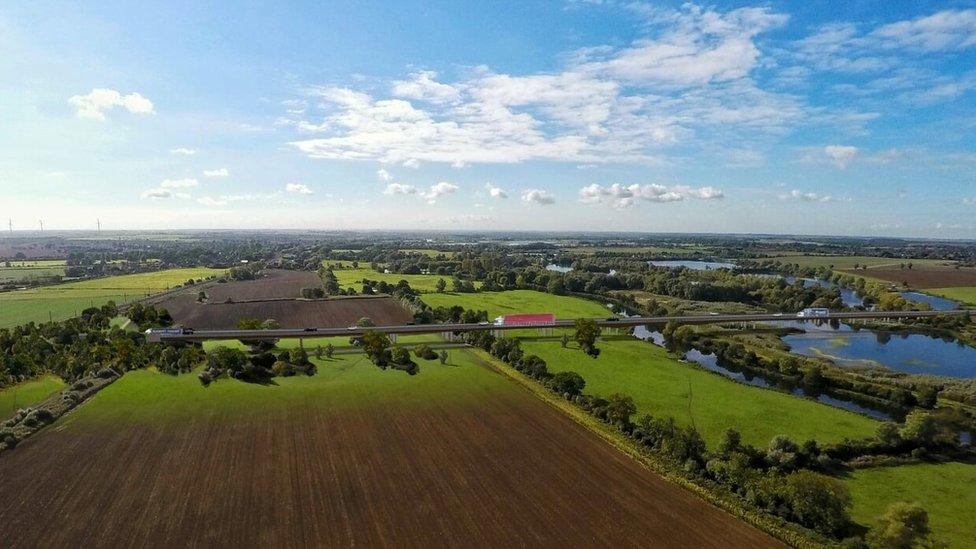
- Published11 May 2016
